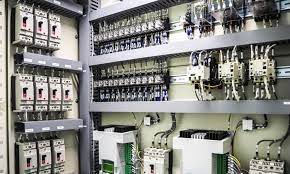Circuit breakers are essential safety devices that protect electrical circuits from overloads, short circuits, ground faults, and arc faults. They play a critical role in preventing electrical hazards such as fires and equipment damage. In this blog, we will demystify circuit breakers by exploring the different types available and their specific applications. Understanding these types will help you make informed decisions when it comes to electrical safety in your home or workplace.
Miniature Circuit Breakers (MCBs)
MCBs are the most common type of circuit breakers found in residential and commercial settings. They are compact, cost-effective, and designed to protect circuits with lower current ratings, typically up to 100 amps. MCBs automatically trip when they detect an overload or short circuit, cutting off the flow of electricity. They are suitable for general applications and can be found in distribution panels, lighting circuits, and power outlets.
Molded Case Circuit Breakers (MCCBs)
MCCBs are larger and more robust than MCBs, making them suitable for industrial and commercial applications. They can handle higher current ratings, ranging from 100 amps to several thousand amps. MCCBs offer adjustable trip settings, allowing customization based on specific system requirements. They protect against overcurrents, short circuits, and ground faults. MCCBs find applications in distribution boards, motor control centers, and heavy machinery.
Residual Current Circuit Breakers (RCCBs)
RCCBs, also known as ground fault circuit interrupters (GFCIs), are designed to protect against electrical shocks and ground faults. They monitor the difference between the current flowing in the live and neutral conductors. If a ground fault occurs, indicating current leakage to the ground, the RCCB quickly trips, preventing electric shock. RCCBs are commonly installed in areas with water exposure, such as bathrooms, kitchens, and outdoor outlets.
Arc Fault Circuit Interrupters (AFCIs)
AFCIs are specialized circuit breakers that detect and mitigate the risk of electrical fires caused by arc faults. Arc faults occur when electricity jumps between damaged or deteriorated wires, connections, or components. AFCIs continuously monitor the circuit for dangerous arcing conditions. If an arc fault is detected, the AFCI trips, preventing the ignition of nearby combustible materials. AFCIs are typically installed in bedrooms, living rooms, and areas where fires can pose a significant risk.
Ground Fault Circuit Interrupters (GFCIs)
GFCIs are similar to RCCBs and provide protection against ground faults and electric shocks. They monitor the difference between the current flowing in the live and neutral conductors. However, GFCIs primarily focus on protecting individual outlets rather than entire circuits. They are commonly installed in areas with water or moisture exposure, such as bathrooms, kitchens, and outdoor outlets.
Conclusion
Circuit breakers are crucial components of electrical systems, ensuring the safety and reliability of our homes, offices, and industries. By understanding the different types of circuit breakers and their applications, you can make informed decisions when it comes to protecting your electrical circuits. Whether you are a homeowner, an electrical professional, or a business owner, it is vital to select the right circuit breakers for your specific needs. Consult with a qualified electrician to assess your requirements and ensure proper installation and functionality of circuit breakers in your electrical system.
Unlocking Efficiency: The Importance of Relay Retrofitting in Industrial Systems
Circuit Breaker Overhauling Services in India


No comments yet